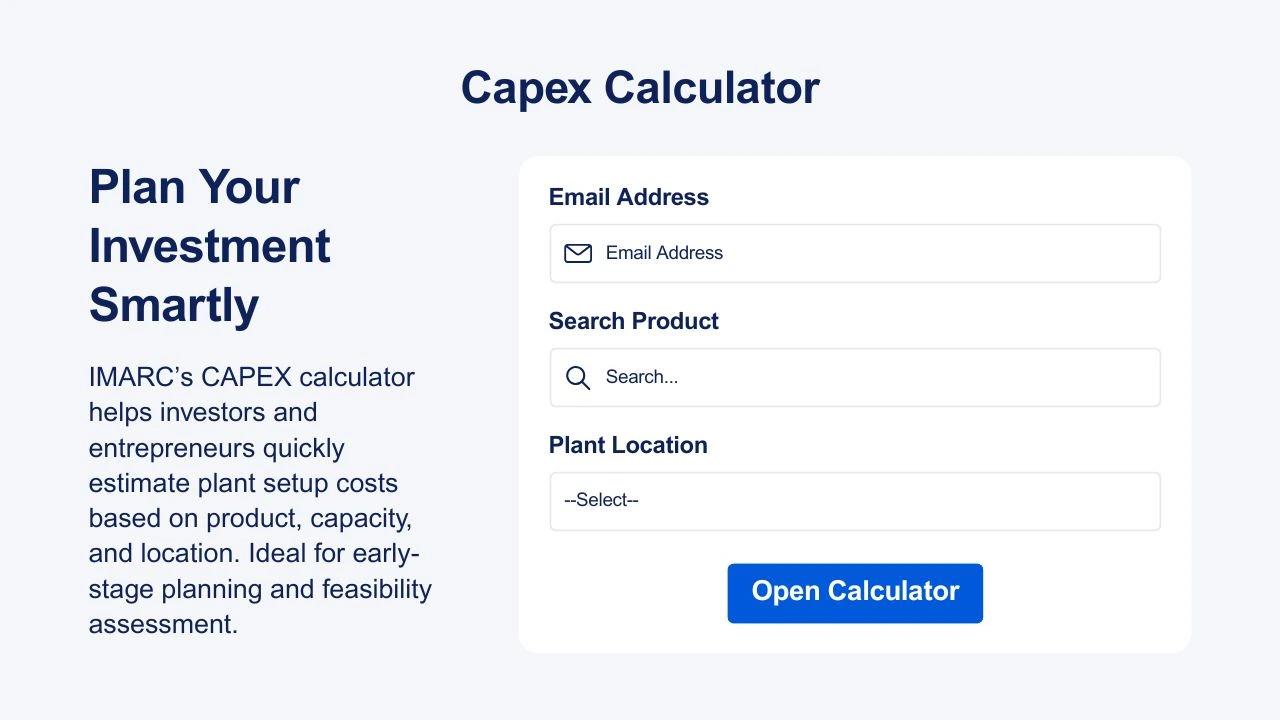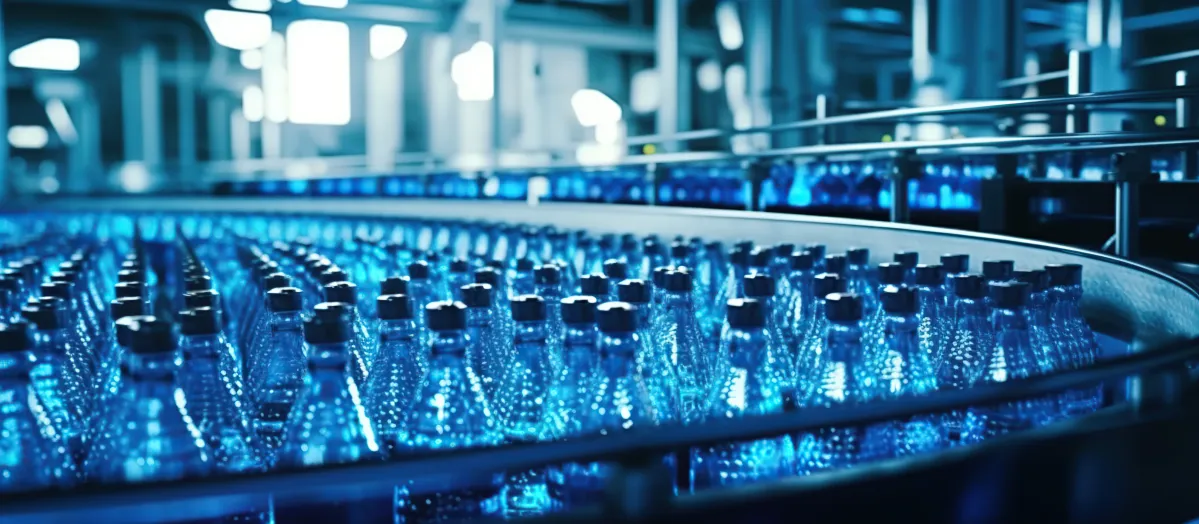
Vitamin Water Manufacturing Plant Setup Report 2025: Cost, Raw Materials Requirement And Infrastructure
Setting up a Vitamin Water manufacturing plant involves securing food-grade equipment, water purification systems, mixing and blending units, automated bottling lines, and quality control processes. Compliance with local food safety regulations, reliable sourcing of vitamins, minerals, and flavoring agents, and effective packaging design are essential for successful market entry.
IMARC Group's report, titled “ Vitamin Water Manufacturing Plant Project Report 2025: Industry Trends, Plant Setup, Machinery, Raw Materials, Investment Opportunities, Cost and Revenue,” provides a complete roadmap for setting up a vitamin water manufacturing plant. It covers a comprehensive market overview to micro-level information such as unit operations involved, raw material requirements, utility requirements, infrastructure requirements, machinery and technology requirements, manpower requirements, packaging requirements, transportation requirements, etc.
Request for a Sample Report : https://www.imarcgroup.com/vitamin-water-manufacturing-plant-project-report/requestsample
Vitamin Water Industry outlook 2025:
The Vitamin Water industry in 2025 is projected to witness steady growth, driven by increasing consumer demand for functional and fortified beverages. Rising health awareness, urbanization, and the shift away from sugary carbonated drinks are fueling market expansion. Innovation in flavors, natural sweeteners, and eco-friendly packaging is expected to attract a broader consumer base. Asia-Pacific and North America remain key growth regions due to high disposable incomes and evolving lifestyle trends. Strategic collaborations, premium positioning, and targeted marketing are likely to enhance brand visibility, while regulatory compliance and sustainable sourcing practices will play a crucial role in maintaining industry competitiveness.
Key Insights for Vitamin Water Manufacturing Plant Setup:
Detailed Process Flow:
-
Product Overview
Unit Operations Involved
Mass Balance and Raw Material Requirements
Quality Assurance Criteria
Technical Tests
Project Details, Requirements and Costs Involved:
-
Land, Location and Site Development
Plant Layout
Machinery Requirements and Costs
Raw Material Requirements and Costs
Packaging Requirements and Costs
Transportation Requirements and Costs
Utility Requirements and Costs
Human Resource Requirements and Costs
Capital Expenditure (CapEx) and Operational Expenditure (OpEx) Analysis:

Project Economics:
-
Capital Investments
Operating Costs
Expenditure Projections
Revenue Projections
Taxation and Depreciation
Profit Projections
Financial Analysis
Profitability Analysis:
-
Total Income
Total Expenditure
Gross Profit
Gross Margin
Net Profit
Net Margin
Key Cost Components of Setting Up a Vitamin Water Plant :
-
Facility and Infrastructure – Land acquisition or leasing, plant construction, utilities setup (water, electricity, wastewater management).
Water Treatment and Purification Systems – Filtration units, reverse osmosis systems, UV treatment, and mineral balancing equipment.
Mixing and Blending Equipment – Stainless steel tanks, agitators, dosing systems for vitamins, minerals, flavors, and sweeteners.
Bottling and Packaging Lines – Filling machines, capping units, labeling systems, shrink wrapping, and packaging materials.
Quality Control and Testing – Laboratory setup, testing kits, and compliance with food safety standards.
Labor and Staffing – Skilled operators, technicians, quality inspectors, and administrative staff.
Licensing and Regulatory Compliance – Certifications, permits, and food safety audits.
Marketing and Distribution Setup – Branding, logistics, and sales network development.
Economic Trends Influencing Vitamin Water Plant Setup Costs 2025 :
-
Rising Raw Material Prices – Increasing costs of vitamins, minerals, and natural flavoring agents due to global supply chain pressures.
Energy Cost Fluctuations – Volatility in electricity and fuel prices impacting production and distribution expenses.
Labor Market Shifts – Higher wages and skilled labor shortages in manufacturing sectors driving operational costs upward.
Packaging Material Inflation – Growing prices of PET bottles, caps, and eco-friendly alternatives influenced by sustainability trends.
Regulatory Compliance Costs – Stricter food safety and environmental regulations requiring investment in advanced technology and certifications.
Global Trade and Logistics Challenges – Shipping delays and increased freight rates affecting equipment and ingredient sourcing.
Speak to an Analyst for Customized Report: https://www.imarcgroup.com/request?type=report&id=22766&flag=C
Challenges and Considerations for Investors in Vitamin Water Plant Projects:
-
High Initial Capital Requirement – Significant investment needed for plant setup, advanced equipment, and quality control systems.
Regulatory Compliance – Adhering to strict food safety, labeling, and environmental standards across different markets.
Market Competition – Strong presence of established beverage brands requiring differentiation through innovation and branding.
Supply Chain Dependence – Reliance on consistent sourcing of quality ingredients, packaging materials, and purified water.
Consumer Preference Shifts – Changing trends toward sugar-free, organic, or plant-based functional beverages.
Operational Efficiency – Managing production costs, waste reduction, and workforce productivity for sustained profitability.
Conclusion:
The Vitamin Water industry in 2025 presents substantial opportunities for growth, fueled by rising consumer demand for functional and health-oriented beverages. However, establishing a manufacturing plant requires careful planning, significant investment, and strict adherence to regulatory standards. Success depends on securing high-quality raw materials, implementing efficient production processes, and developing strong branding to compete in a crowded market. Economic factors such as raw material costs, energy prices, and labor availability must be monitored closely, while innovation in flavors, formulations, and sustainable packaging can provide a competitive edge. Strategic execution can position investors for long-term profitability in this evolving sector.
About Us:
IMARC Group is a global management consulting firm that helps the world's most ambitious changemakers to create a lasting impact. The company excel in understanding its client's business priorities and delivering tailored solutions that drive meaningful outcomes. We provide a comprehensive suite of market entry and expansion services. Our offerings include thorough market assessment, feasibility studies, company incorporation assistance, factory setup support, regulatory approvals and licensing navigation, branding, marketing and sales strategies, competitive landscape, and benchmarking analyses, pricing and cost research, and procurement research.
Contact Us:
IMARC Group
134 N 4th St. Brooklyn, NY 11249, USA
Email: sales[@]imarcgroup.com
Tel No:(D) +91 120 433 0800
United States: (+1-201971-6302)
Legal Disclaimer:
MENAFN provides the
information “as is” without warranty of any kind. We do not accept
any responsibility or liability for the accuracy, content, images,
videos, licenses, completeness, legality, or reliability of the information
contained in this article. If you have any complaints or copyright
issues related to this article, kindly contact the provider above.


















Comments
No comment